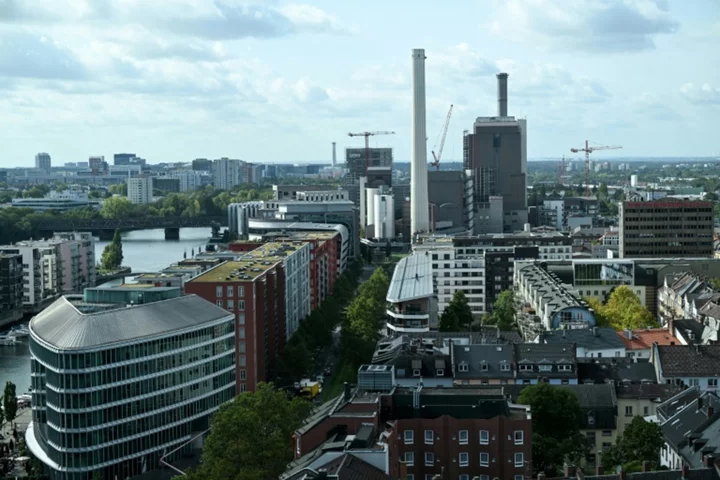The German government slashed its growth forecast Wednesday, predicting Europe's top economy will shrink this year as it battles high inflation, elevated energy prices and a manufacturing slump.
Output will shrink 0.4 percent, the economy ministry said in its latest projections.
This is a marked downgrade from its last estimate in April, when Berlin forecast growth of 0.4 percent in 2023.
The economy has faced severe headwinds since Russia's invasion of Ukraine last year sent inflation, particularly the cost of energy, soaring.
The crisis has been compounded by a slowdown in the energy-hungry manufacturing sector, weakness in key trading partner China, and aggressive eurozone rate hikes aimed at taming runaway consumer prices.
"In a difficult geopolitical environment, we are emerging from the crisis more slowly than expected," Economy Minister Robert Habeck acknowledged in a statement.
The German economy fell into recession around the turn of the year and has since been struggling to get back on its feet, registering zero growth in the second quarter.
The government's prediction is in line with other recent gloomy estimates.
The International Monetary Fund on Tuesday forecast Germany will be the worst performing major economy in 2023, shrinking 0.5 percent.
In their forecasts Wednesday, the government predicted the economy would pick up next year with growth of 1.3 percent, and expand by 1.5 percent in 2025.
Inflation is expected to come in at 6.1 percent this year, before declining to 2.6 percent next year and two percent in 2025, the economy ministry said.
- 'Sustainable recovery' in view -
Habeck sought to strike an upbeat tone, noting that "for the coming year, we expect growth again.
"The course for a sustainable economic recovery has been set: the decline in inflation is significant, and with it, real incomes are rising again."
The last official forecast in April came as hopes were rising that Germany had weathered the energy crisis better than expected, with some indicators pointing to an industrial rebound.
But the picture has deteriorated again in recent months, with expectations growing the economy could tip back into recession.
While they have come down, energy prices are still far higher than prior to the Ukraine war. And while inflation slowed to 4.5 percent in September, it remains stubbornly high.
The worsening economic situation has led to debate about whether Germany is once again the "sick man of Europe", a label from the late 1990s when the country grappled with the costly fallout of reunification.
But some analysts have said this is going too far, pointing out the labour market remains robust despite the challenges.
sr/mfp/rox









